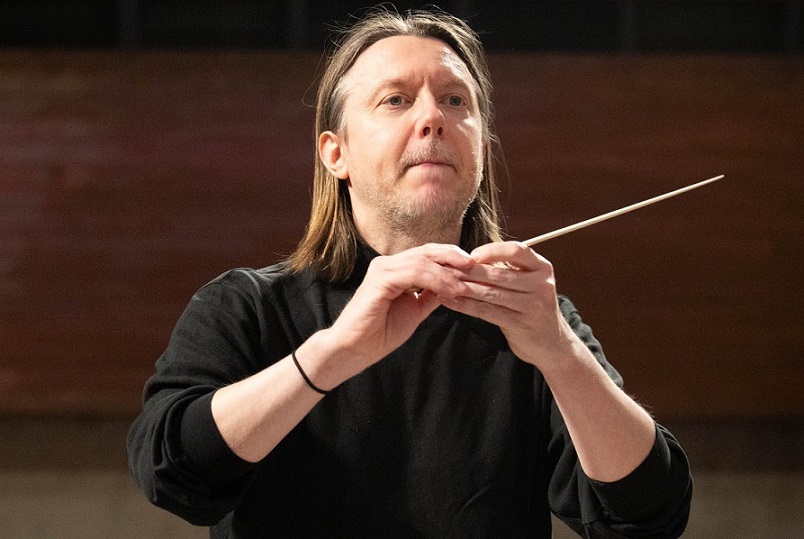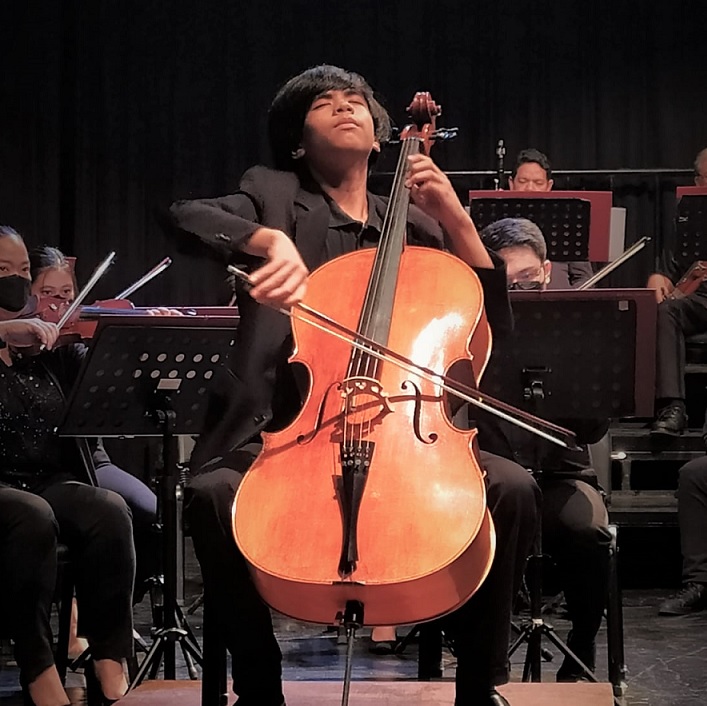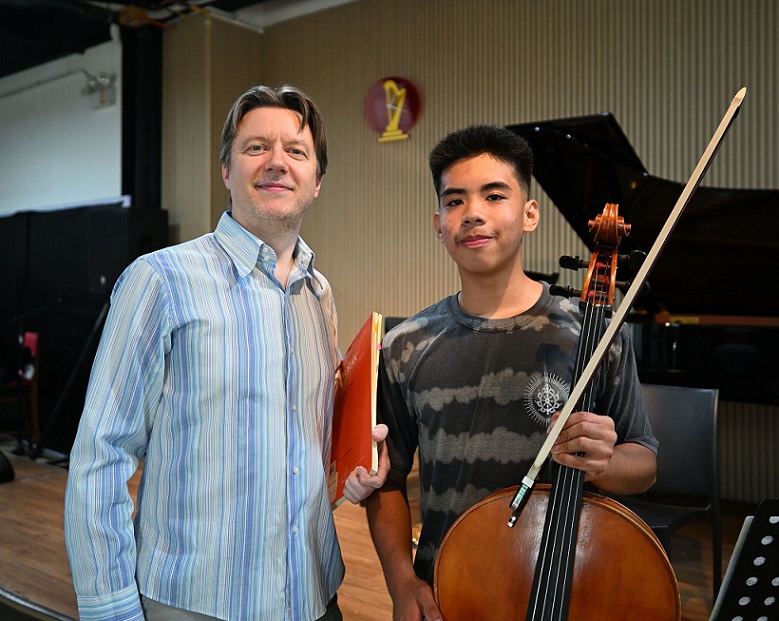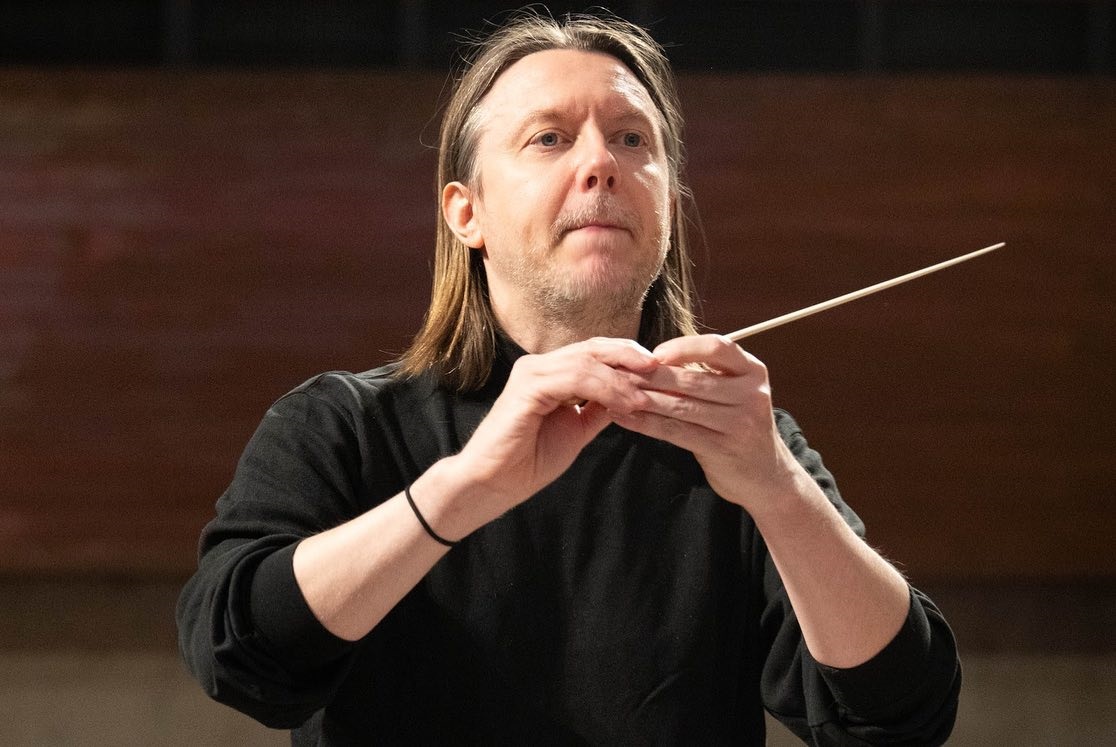What do Klaus Makela, Esa-Pekka Salonen, Tarmo Peltokoski and Sasha Makila have in common?
They are all distinguished conductors from Finland and enjoying world-wide high esteem from both audiences and critics.
Peltokoski debuted with the Manila Symphony Orchestra in 2019 at age 19 with violinist Jeanne Marquez as soloist. After a program of a Sibelius violin concerto and Beethoven’s Fifth, Peltokoski emerged a phenomenal conducting sensation. Nothing like him was seen in Manila’s concert scene in many years.
The good news is that another Finnish conductor by the name of Sasha Makila will conduct the Manila Symphony Orchestra on Saturday, May 4, 7:30 p.m. at the Samsung Theater for the Performing Arts.

It is his first time in Manila and he’s not a bit worried about the rising summer temperature. “I have performed in hot countries before and I must say it is much easier for the conductor than for the players whose work is more physical than conducting. Conducting is mostly work for one’s brain and ears.”
Damodar das Castillo who will interpret the popular but technically demanding Dvorak cello concerto told Vera Files: “This is the first time I will play the concerto in Manila. Compared to my past repertoire, the Dvorak concerto is really virtuosic, very challenging and exciting to play.”
Maestro Makila who started as a cellist said: “I love the Dvorak concerto. It is one of the great works of the cello repertoire, but I never performed it myself.”

Back to Maestro Makila, one asked him: why is Finland so famous world-wide for good and versatile conductors?
The artistic director of the Helsinki Metropolitan Orchestra and formerly music director of St. Michel Strings, Makila points out Finland has a tradition of conducting which goes back for over a hundred years starting from Robert Kajanus, the founder of the Helsinki Philharmonic Orchestra.
He elaborates: “In 1969, Okko Kamu won the first international Herbert von Karajan conducting competition in the 80s followed by several young Finnish conductors acquiring international fame. Conducting has become a very fashionable thing in Finland which almost every musician wants to try their hand on. I would say this is the main reason behind the great number of Finnish conductors in the music scene.”
He observes that more young people now get fascinated about conducting. “But I agree with the late Maestro Yuri Temirkanov who says that conducting is a profession for the second half of one’s life. An instrumentalist can be at the top of their powers as a teenager. But conducting is not only about how to move your hands or the baton. As a conductor, you need to understand what it is to be a human – to love, to suffer, to experience loss as well as enjoy the good things in life. Only this way you can convincingly interpret the musical works of great geniuses and communicate your understanding to a hundred musicians. This is something that even a great conducting education – which we undoubtedly do have in Finland – cannot give.”
He admires the late Paavo Berglund, who he says had an incredible work ethic and who knew his scores –especially the Sibelius symphonies – inside out. An early favorite was Okko Kamu and his professor at the Sibelius Academy, Leif Segerstam. “He is a great artist and one of the last virtuosos of the baton.”
He was studying to be a cellist before he was lured into conducting. “I got curious about conducting during my cello studies at the Helsinki Conservatory.”
It came about because of several lucky coincidences. “I did not dream about becoming a conductor as a child. I just found it a fascinating profession and wanted to know everything about it. As a cellist I did some freelancing. Later my conducting studies took all my time and there was no more time left for practicing the cello.”
Makila was one-time Maestro Kurt Masur’s assistant at the Orchestre National de France. “Maestro Masur was a great interpreter of the works by Beethoven, Mendelssohn, Schumann, Bruckner, and many others – mainly the central German repertoire. Working with him in Paris was an incredible learning experience. He was a complicated person, and, in many aspects, very old fashioned. There simply are no conductors like him anymore. He was like a dinosaur, one of the last of his kind. I was lucky to be able to spend some years as his assistant with the French National Orchestra.”

A prizewinner of the Vakhtang Jordania International Conducting Competition in USA, Makila’s conducting career has taken him in four continents and to major ensembles such as the Cleveland Orchestra and the Mariinsky Theatre in Russia.
He admits that competition where he was a prizewinner is a necessary evil in the music world. “It is true that taking part in competitions made it easier for me to enter the music scene in Finland. If you win a prize in a competition then you must be good in what you do. What I gained in the dozen or so competitions were discovering a broad repertoire and experience with different orchestras around the world. But I am not a competitive person at all. I think conducting is so different from playing an instrument that very few people actually can tell what the difference is a conductor makes to the playing of an ensemble. If the jury does not have people who have a keen eye for conducting technique, then the results are often arbitrary, or, political.”
Audiences profile wherever he performed are not always the same. “The audiences are different everywhere in the world. In Eastern Europe people are very emotional and enthusiastic about the music they hear. Nordic people tend to be somewhat cooler. In the US the audiences mostly consist of older people. In South Korea I have seen the youngest audiences in classical music concerts. I would like to see younger audiences, but it all comes down to music education. We need to teach young people how to play classical instruments, otherwise there cannot be appreciation of what the orchestras do.”
For Makila, conducting is a demanding profession but he enjoys the privilege of going through musical masterpieces that have been written by some of the greatest creative minds of all time. “Performing in front of an audience can be an incredible high when things go well. I am a bit of a nerd, so I like studying and doing research on old music manuscripts. I also have learned to like traveling to new countries and experiencing different cultures. This trip to Manila is definitely a highlight of my spring.”
(The May 4 concert is a part of the 2024-2025 MSO Concert Series: In Pursuit of Excellence presented by the Manila Symphony Orchestra Foundation and Standard Insurance in partnership with The Embassy of Finland in Manila. For ticket reservations, contact Ms. Coeli at marketing.manilasymphony@gmail.com or via Viber +639174613374.)
